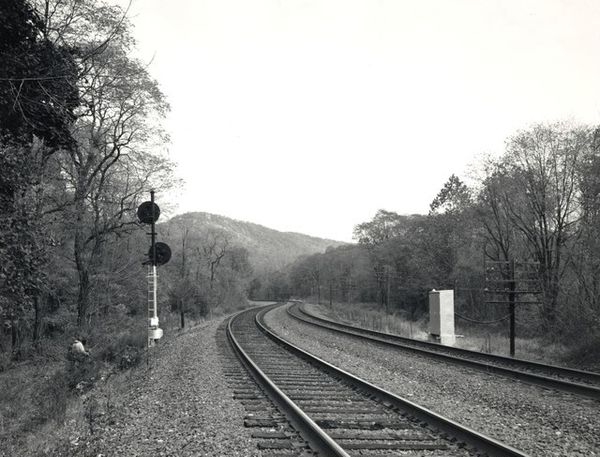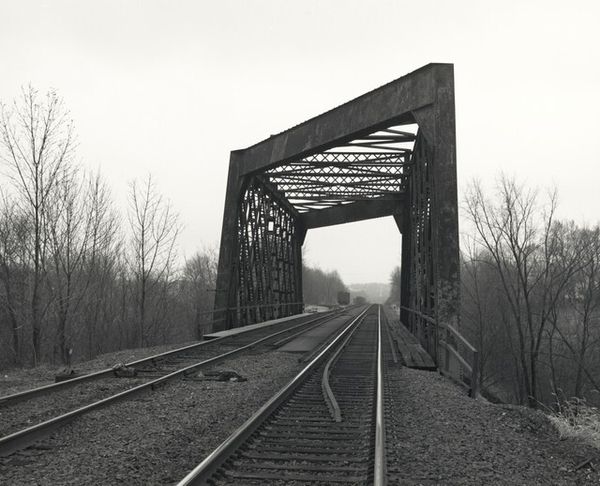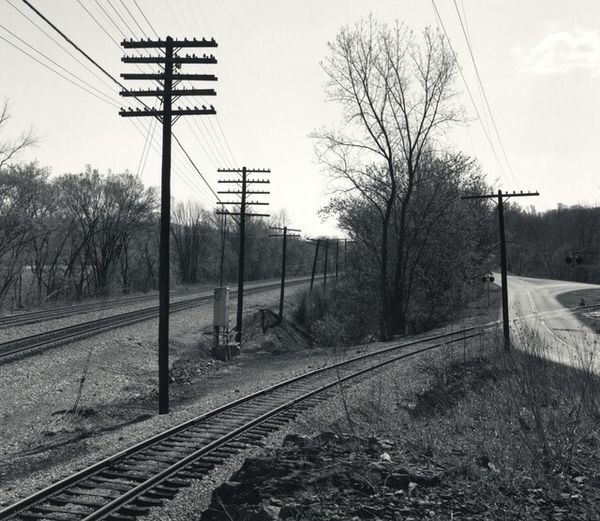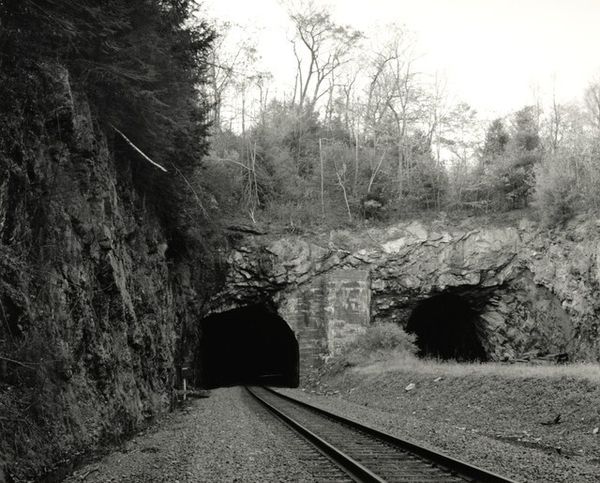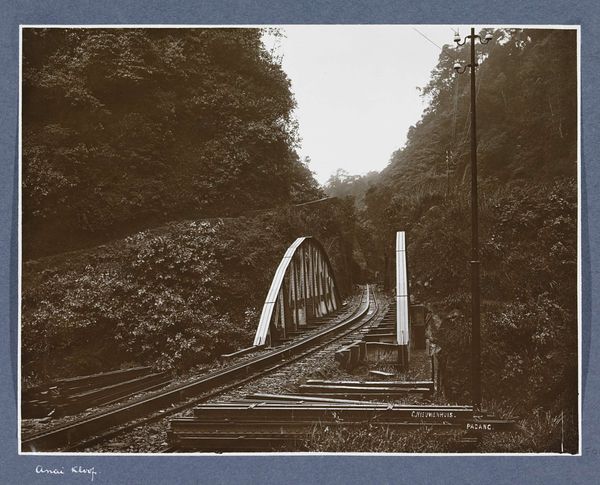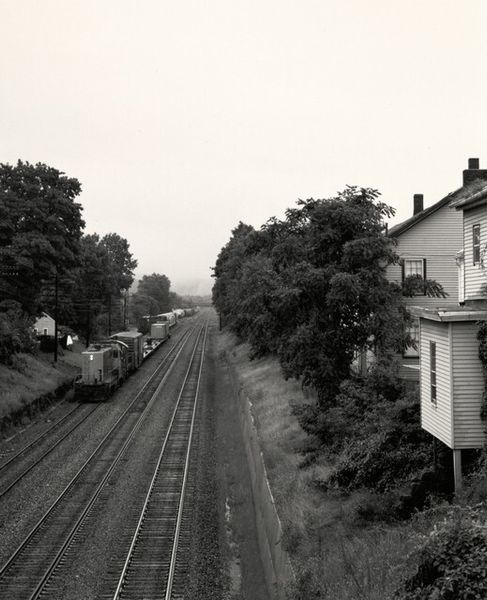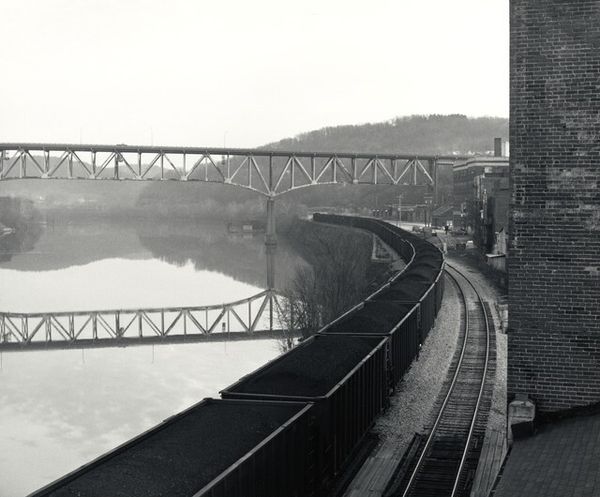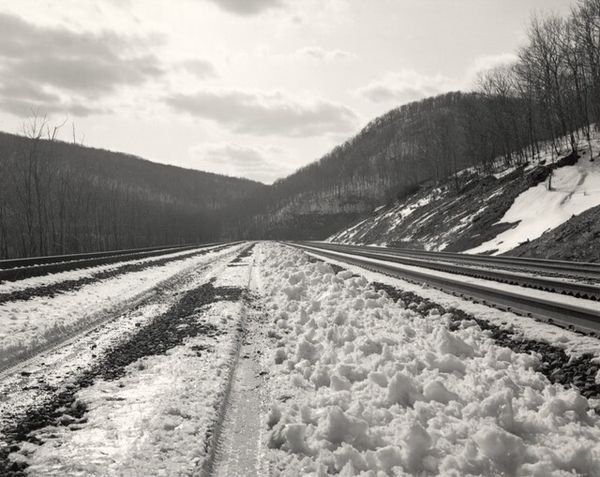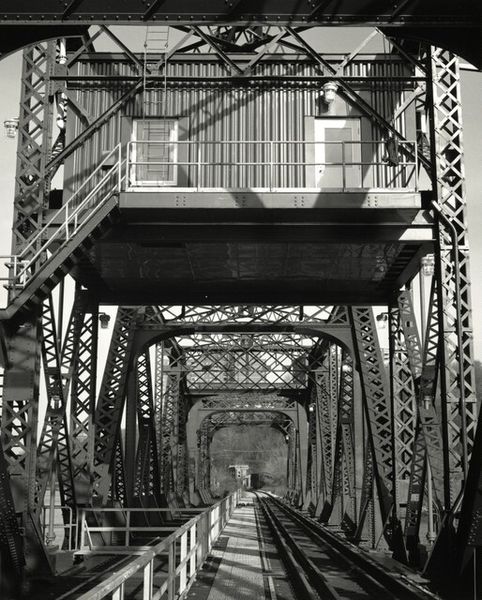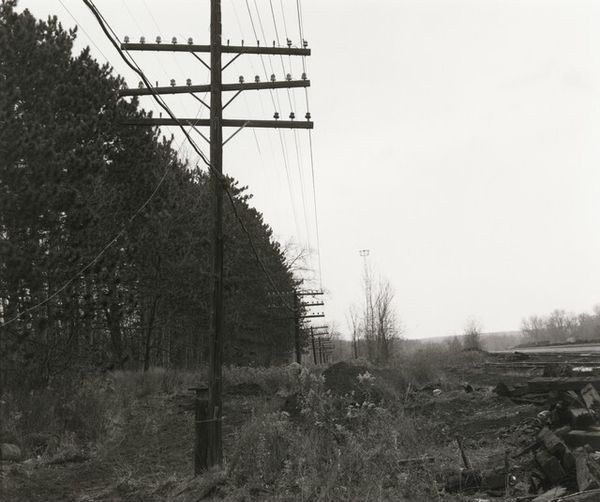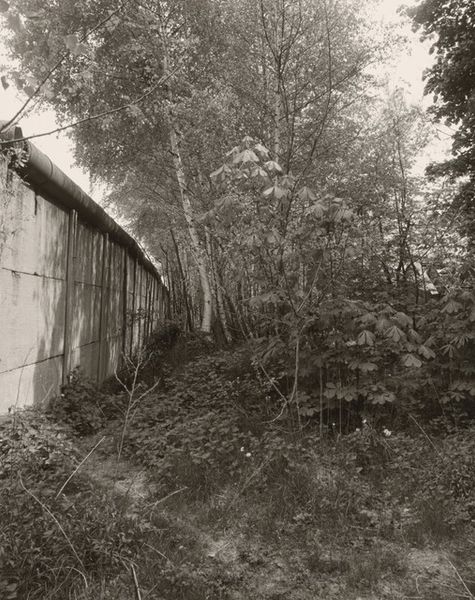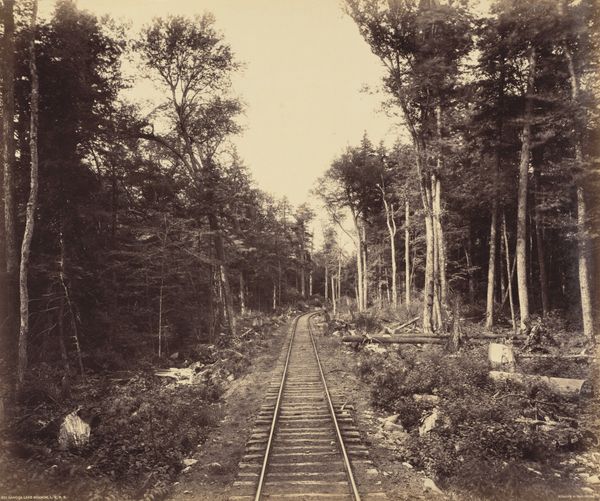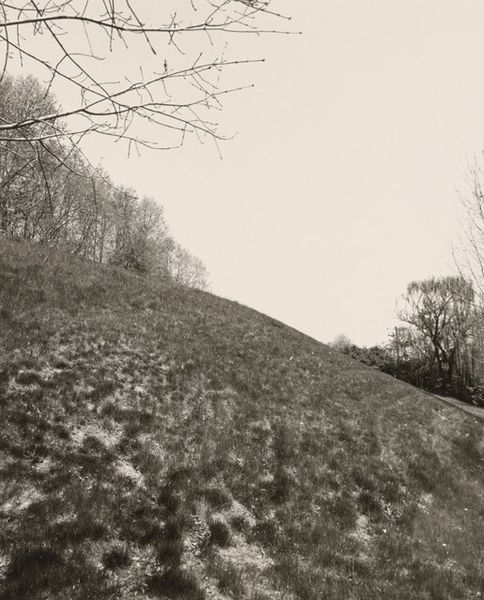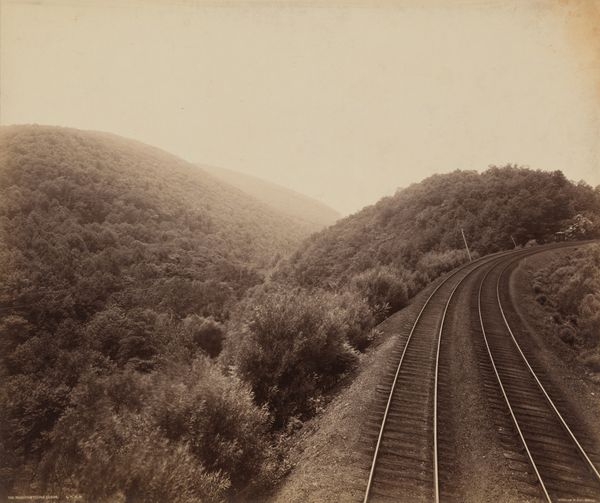
photography, gelatin-silver-print
#
black and white photography
#
landscape
#
black and white format
#
photography
#
gelatin-silver-print
#
monochrome photography
#
line
#
monochrome
#
modernism
#
monochrome
Dimensions: image: 17.78 × 12.7 cm (7 × 5 in.) mat: 54.61 × 44.45 cm (21 1/2 × 17 1/2 in.) framed: 59.69 × 49.53 cm (23 1/2 × 19 1/2 in.)
Copyright: National Gallery of Art: CC0 1.0
Curator: So here we have James Welling's "West," a gelatin-silver print from 1987. My initial impression is bleak; it's just tracks heading into nowhere! Editor: Bleak perhaps, but elegantly so. Notice how Welling composes the scene: the converging lines of the railroad tracks bisect the picture plane, drawing your eye relentlessly into the distance, into a vanishing point. Curator: Yes, the linearity is definitely there, the whole thing has a coldness to it. It's interesting how the desaturated blacks and whites mute the surrounding landscape. No colorful distractions—just steel and dormant trees. I find the contrast intriguing, almost jarring in how industrial is juxtaposed with nature. Editor: Exactly! This stark contrast heightens the tension. Think of the gelatin-silver print medium: its capacity for nuanced gradations is perfect for delineating form. What at first seems like a plain scene is anything but when we look closely at how light and shadow are calibrated across textures like gravel, metal, and bark. Curator: It certainly demands your attention, doesn't it? I mean, a railroad isn't typically considered…scenic. And that perspective - you’re not traveling on them, so its a sort of frozen space you see the path from above, from nowhere... It evokes that sense of isolation when traveling to some unknown place... like waiting for a train to your future? Editor: The 'frozen space' quality you mention brings us to photography’s inherent capability for stillness, a fixed gaze. I see Modernism's obsession with speed and transit here but framed through a lens of melancholic reflection on the effects on nature—not celebrating it. It uses strong, repeating geometric forms yet speaks to a broader sense of longing for simpler places as industry grows all around you. Curator: Ultimately, I walk away feeling like he's found poetry within the mundane – and perhaps even the somewhat destructive. Welling reframes that, and forces us to ponder progress against nature, and the cold spaces we now traverse within. Editor: Indeed. Welling prompts us to examine not only the structural qualities of the photograph but also its haunting narrative of industrial advancement cutting its path.
Comments
No comments
Be the first to comment and join the conversation on the ultimate creative platform.
